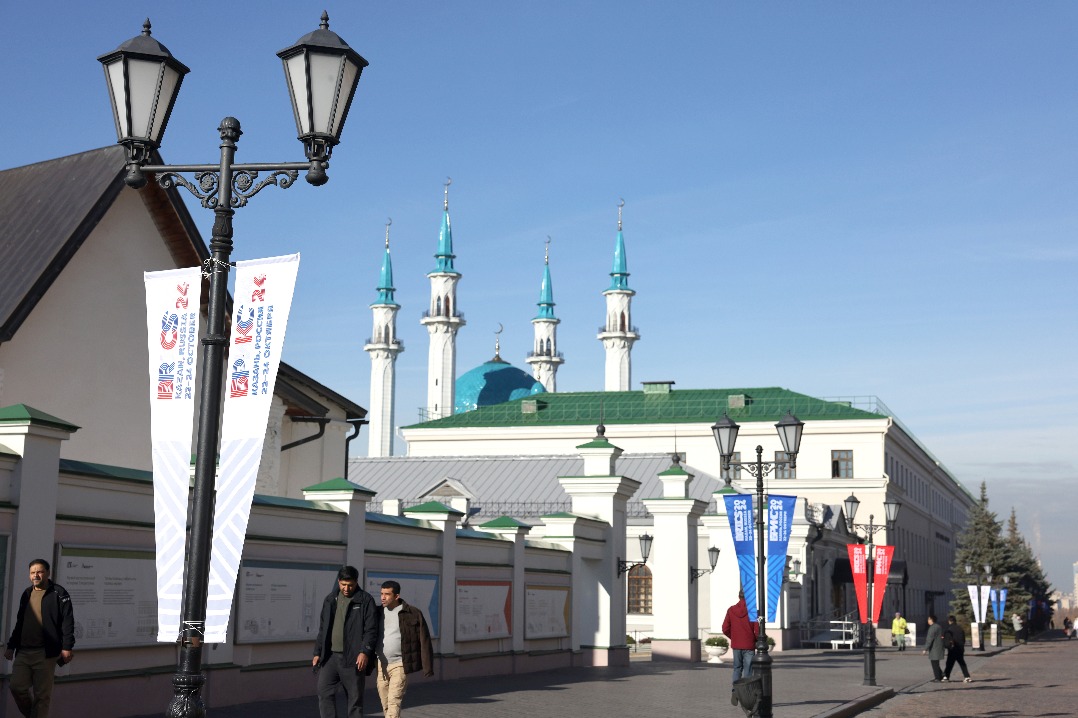Washington prolonging Peninsula frictions to try and squeeze all advantages from them: China Daily editorial

The United States Department of the Treasury's Office of Foreign Assets Control sanctioned six individuals and five entities based in China on Wednesday, citing their involvement in the procurement of items supporting the Democratic People's Republic of Korea's ballistic missile and space programs.
This represents the latest move by the United States to take advantage of regional hotspot issues to advance Washington's geopolitical agenda in the Asia-Pacific region. Alleging that the DPRK's missile and space programs constitute "flagrant violations" of multiple United Nations Security Council resolutions, the Treasury Department's action shows why the Korean Peninsula issue has dragged on for so long.
The stagnation of the process to resolve the Korean Peninsula issue since 2018 is rooted in the US' lack of response to the DPRK's denuclearization measures and its disregard for the latter's legitimate concerns.
Instead, the US has imposed sweeping sanctions, starting in the 1950s, that have relentlessly threatened the DPRK people's livelihoods for nearly 80 years, despite its claim that it cares about the humanitarian situation in the country.
China advocates for the comprehensive and balanced implementation of the UNSC resolutions and staunchly opposes the selective approach that only emphasizes sanctions and undervalues dialogue.
Washington, which always needs to build up enemies as an excuse for its military deployment worldwide, has only once seemingly thought of resolving the issue, but that came to nothing, and it has since been doing all it can to prolong it.
Just as it is doing with the Ukraine crisis, the Iran nuclear issue, the Middle East conflict and the South China Sea issue, the aim is not only to weaken the direct party in its crosshair, in this case the DPRK, but also to try and leverage as much advantage as it can from the issue, which includes using it as an excuse to marshal allies, pressure rivals and coerce others.
US strategists regard the former as the direct benefit of the crisis and the latter as "derivatives", whose benefits may far outweigh the direct benefit. By prolonging the Korean Peninsula issue for more than three quarters of a century, Washington has leveraged it to shape the US' geopolitical layout in the Asia-Pacific.
Consequently, those countries and parties that act earnestly to resolve the crises or issues created by Washington are invariably classified by the US as "troublemakers", and even their normal relations with the party at the center of the issue can be an excuse for the US to justify sanctions or bullying. Basically, the US vigilantly guards against any party trying to resolve these issues and crises that it has painstakingly maintained as strategic geopolitical assets like a dog watches a bone.
Those acting in defiance of the US' stay-away warning will be subject to the latter's stigmatizing campaign to smear the true peace-brokers and mediators as birds of the same feather with what it labels as "evil forces" at the center of the issues. But when it is the US itself or its allies that flagrantly violate UNSC resolutions — which Israel has done for decades on Palestine soil with Tel Aviv calling UN agencies "terrorist" organizations and more than 190 UN staff being killed in Gaza since October — US lawmakers can still give the "violators" standing ovations in the Capitol Hill as they did on Wednesday for Israeli Prime Minister Benjamin Netanyahu.
China's efforts to promote resolutions to the Korean Peninsula, Europe and the Middle East crises have been widely recognized. But those endeavors have continuously constituted excuses for the US to sanction, smear and contain China. Over the handling of these hotspot issues, there must be one between China and the US that stands on the wrong side of history. It is not China.
































